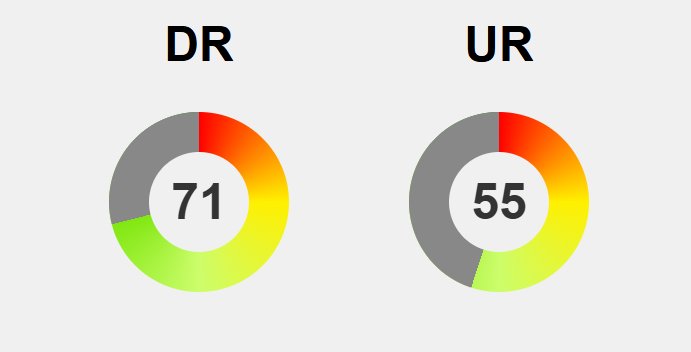Can the stars truly reveal who we are and shape our life’s path? Astrology, rooted in the idea that celestial patterns influence personality and destiny, offers a captivating cosmic blueprint through birth charts and planetary alignments. Supporters believe these energetic vibrations guide us in subtle yet meaningful ways, providing a language for self-discovery amid life’s uncertainties. But skeptics point out the lack of scientific evidence, emphasizing astrology’s reliance on vague generalities and psychological biases. Despite this, millions incorporate astrology daily—reading horoscopes, exploring compatibility, and finding comfort in celestial narratives that seem to mirror their inner worlds. This enduring fascination raises a compelling question: is astrology a profound mirror reflecting human hopes and fears, or just a symbolic language without scientific grounding? Whether as a tool for introspection or entertainment, astrology’s powerful influence persists, inviting us to explore the mysterious connection between the cosmos and our inner selves.
Unlocking the Cosmic Blueprint: An Introduction to Astrology’s Age-Old Claims
Astrology is rooted in the idea that the positions and movements of celestial bodies—such as planets, stars, and the moon—hold influence over our personalities and life experiences. This centuries-old belief suggests that at the moment of your birth, the sky’s arrangement acts like a cosmic blueprint, revealing insights into who you are and the choices you’ll face. Think of it as a celestial map, with each person’s birth chart serving as a unique fingerprint of the universe’s influence.
Proponents argue that these cosmic patterns aren’t just symbolic; they’re active forces shaping our inner worlds. For example, someone born when Mars is in a particular position might be naturally assertive or impulsive, while another with a different planetary setup could be more introspective or cautious. They believe these influences subtly guide our temperament, decisions, and emotional responses, creating a personalized blueprint written in the stars.
Most people are familiar with their zodiac sign—the sun sign that corresponds to the position of the sun at their birth. But astrology delves much deeper. It considers the moon, which influences our inner feelings, and the planets, each associated with specific areas of life like love, communication, or ambition. All these elements come together in a detailed birth chart, offering a layered view of the universe’s impact on our lives.
Throughout history, astrology has claimed it can help us understand our true nature, purpose, and even predict future events. It suggests that celestial patterns act as a language that can decode who we are beneath surface traits, helping guide us through life’s uncertainties. Many see their birth chart as a tool for self-discovery, revealing strengths, challenges, and potential pathways.
Despite its long tradition and ongoing popularity, astrology isn’t supported by scientific evidence. Critics point out that there’s no physical mechanism linking planetary positions to personal traits or life outcomes. The forces at play—like gravity—are far too weak to influence individual lives, making astrology more symbolic than scientific.
Still, millions find value in astrology because it offers a familiar language for reflection and connection. Whether through daily horoscopes, compatibility readings, or exploring their birth charts, many use astrology to make sense of their experiences and uncertainties. It provides a sense of order and understanding in an unpredictable world, acting as a mirror that reflects hopes, fears, and aspirations through a cosmic lens.
The Universe’s Hidden Hand: How Celestial Patterns Shape Our Lives
Astrology suggests that the movements and positions of celestial bodies aren’t just distant objects in space—they emit energies or vibrations that influence our lives in subtle, yet meaningful ways. Supporters believe these cosmic patterns act as a blueprint, shaping our personality traits, emotional responses, and even our decision-making processes. When Mars is in a particular position at your birth, for instance, it’s thought to lend assertiveness or impulsiveness, while a different planetary setup might bring out introspection or caution. These patterns are seen as guiding us through life, almost like an unseen hand steering our choices based on the universe’s grand design.
The core idea is that planets and stars influence us through energetic vibrations rather than physical forces. Many followers interpret these energies as penetrating our subconscious, subtly affecting our moods and reactions without us noticing. This explains phenomena like Mercury retrograde, which many associate with communication mishaps or misunderstandings—followers see these as signs of planetary influence disrupting everyday interactions. The belief is that celestial movements are interconnected with our internal states, creating a web where cosmic rhythms and personal decisions are intertwined.
A key element in this framework is the moment of your birth. Astrology holds that the exact positioning of planets and stars at that specific time forms your unique birth chart—a cosmic fingerprint. This chart maps the positions of the sun, moon, and planets, each linked to distinct personality traits and life themes. For example, a strong Venus influence might indicate a natural inclination toward love and harmony, while a dominant Mars suggests drive and assertiveness. These celestial fingerprints are believed to influence not only inherent tendencies but also the opportunities and challenges you encounter.
Supporters see these celestial influences as active forces rather than mere symbolism. They argue that the universe’s grand design emits energies that shape our subconscious, nudging us toward certain choices or behaviors often without our awareness. While physics struggles to explain how planets could physically impact individual lives, astrology posits that these energies are part of a larger, interconnected system. This cosmic web reflects our internal worlds, offering a mirror that helps us better understand ourselves through planetary alignments.
Even though science has yet to provide concrete evidence for these claims, many continue to believe in the influence of celestial patterns. Whether it’s the current movement of stars or the planetary positions at the time of birth, astrology presents a universe alive and responsive to us—one that subtly guides our decisions and shapes our lives. This perspective suggests that the stars aren’t just distant lights but active participants in our personal stories, weaving their influence into the fabric of our everyday existence.
Whether or not celestial bodies physically steer our lives, their symbolic power in shaping our understanding of ourselves remains strong. Astrology offers a language to interpret our internal worlds, connecting us to a larger cosmic rhythm. It encourages us to see ourselves as part of a vast, interconnected universe—where the movements above reflect and influence the choices we make below. This symbolic influence provides a framework for self-reflection and growth, making the cosmos a mirror for exploring our own nature.
Debunking the Stars: Scientific Skepticism and Criticism of Astrology
Despite its long history and popularity, astrology faces strong skepticism from the scientific community. Numerous studies have attempted to find a tangible link between planetary positions and personal traits or life events, but consistent, convincing evidence remains elusive. Large-scale experiments and surveys show that predictions based on star signs are no better than random guesses, suggesting that any perceived accuracy is purely coincidental.
One major issue is the vagueness of many horoscope descriptions. These broad, ambiguous statements often seem accurate because of the Barnum effect, where people interpret generalities as highly personal. This tendency makes astrology appear precise, even though it’s based on statements that could apply to almost anyone. Over time, this reinforces belief but lacks scientific validity.
Physicists point out a fundamental problem: planets are simply too weakly affected by gravity to influence human lives in any measurable way. The forces they exert are negligible compared to everyday influences. There’s no known physical mechanism—no vibrations, fields, or energies—that could carry planetary influence from space directly into our subconscious or decision-making processes.
Furthermore, predictions from astrology are inconsistent and often contradictory. Different practitioners may give conflicting readings for the same individual, and horoscopes tend to be vague enough to fit multiple outcomes. This inconsistency highlights that astrology is more about storytelling than about offering reliable, testable insights.
From a scientific standpoint, astrology is classified as a pseudoscience because it does not adhere to the scientific method. It fails to generate hypotheses that can be tested and verified under controlled conditions. Instead, it relies heavily on confirmation bias—people remember the hits and forget the misses—making it appear more accurate than it actually is.
Despite this, many people turn to astrology for comfort or guidance, especially during uncertain times. Its narratives offer a sense of order and meaning, even if they lack empirical support. This emotional appeal explains why astrology continues to thrive culturally, rooted more in personal belief than in scientific truth.
Recognizing the absence of scientific backing helps us see astrology for what it truly is: a symbolic language that can inspire self-reflection but doesn’t hold the keys to understanding our personalities or destinies. Its influence remains rooted in human psychology, not cosmic science.
For those interested in exploring the scientific perspective on astrology further, the article here offers an in-depth analysis of its lack of empirical support and the psychological factors that sustain its popularity.
Stars in Our Daily Lives: How Astrology Influences Society and Personal Choices
Many people incorporate astrology into their daily routines, turning to horoscopes for quick guidance and reassurance. A morning check of the daily forecast can set a positive tone or prepare individuals for potential challenges. Whether it’s a gentle reminder to exercise caution or an encouraging nudge to seize opportunities, these snippets help users feel more connected to the universe’s rhythm, often on a subconscious level.
Beyond personal reflection, astrology influences entire industries and social practices. Horoscopes are ubiquitous—appearing in newspapers, online platforms, and social media—reaching millions who follow their daily or weekly predictions. Wellness and alternative health sectors frequently incorporate astrological concepts, suggesting that understanding planetary influences can support emotional balance and self-growth. These practices thrive because astrology offers an accessible language for navigating life’s uncertainties.
Social media has amplified astrology’s reach, transforming it into a shared cultural phenomenon. Influencers and online communities post daily updates, memes, and compatibility analyses, fostering a sense of belonging among zodiac enthusiasts. Comparing signs and exploring planetary movements create a dynamic, immediate experience that reinforces belief and curiosity. This digital environment makes astrology feel personal and relevant, deepening its role in social interactions.
People turn to astrology during stressful or unpredictable times, seeking comfort and a sense of control. Reading a horoscope can provide reassurance, framing personal feelings or decisions within a cosmic context. Many believe that planetary retrogrades or alignments serve as signals for external influences, shaping moods and behaviors rather than personal faults. These narratives influence how individuals interpret setbacks, successes, and relationships.
In social settings, astrology often shapes perceptions of compatibility and conflict. Partners, friends, and colleagues may examine zodiac signs to understand motivations or predict future interactions. Timing advice—such as avoiding major decisions during Mercury retrograde—becomes part of everyday conversation, influencing personal and professional choices. This celestial framing offers a familiar, symbolic way to make sense of social dynamics.
Workplaces and community groups sometimes adopt astrological symbols to foster connection and understanding. From team-building exercises to personal development workshops, these practices use zodiac traits as a shorthand for emotions and motivations. While lacking scientific backing, they tap into universal storytelling and shared symbols that help build empathy and rapport.
Despite skepticism from science, astrology remains deeply embedded in daily life because it fulfills core emotional and social needs. Its presence in media, personal routines, and cultural conversations demonstrates its power as a symbolic language. Whether for entertainment, self-reflection, or social bonding, astrology continues to shape how many interpret their experiences and find meaning in a complex world.
Beyond Belief: Does the Sky Reveal Our True Self or Just Mirror Our Minds?
The question of whether celestial patterns can truly reveal who we are runs deeper than just astrology’s surface claims. Many find comfort in the idea that the stars encode insights about our personality, purpose, and potential, seeing their arrangements as a kind of cosmic blueprint. Birth charts, often described as fingerprints of the universe, seem to offer a window into our strengths, challenges, and the paths we are destined to follow. For those who resonate with these symbols, astrology becomes a mirror reflecting their inner worlds, helping them understand themselves on a more personal level.
However, scientific evidence repeatedly challenges these ideas. Decades of research have failed to establish any consistent, measurable link between planetary positions and specific traits or life outcomes. While it’s easy to be drawn in by the stories and archetypes astrology offers, the lack of empirical support suggests that these connections are more about perception than fact. Much of what astrology provides—its narratives and symbols—serve as tools for self-reflection rather than literal truths written in the stars.
Many people turn to astrology precisely because it offers a language of meaning in a chaotic world. Its stories and archetypes resonate deeply, providing reassurance and a sense of order amid uncertainty. Whether it’s through daily horoscopes or exploring a birth chart, engaging with astrology encourages introspection and helps individuals frame their experiences within a broader, symbolic context. It’s a way of making sense of life’s unpredictability, not predicting it with certainty.
While the stars may not hold the literal keys to our personalities or destinies, their symbolic power remains significant. Astrology’s strength lies in its ability to foster self-awareness and emotional connection. It invites us to see ourselves as part of an interconnected universe, where cosmic patterns reflect our internal landscapes. This perspective encourages a view of life that values meaning and interconnectedness—without insisting that the universe controls us.
Recognizing that astrology is rooted more in symbolism than science allows us to appreciate its cultural and personal importance. It can be a helpful tool for growth, reflection, and understanding, provided we don’t mistake its stories for scientific facts. By embracing its role as a language of archetypes and narratives, we can gain insight into our inner worlds without losing sight of the difference between belief and evidence.
In the end, whether the stars truly influence us or not, they serve as a mirror for our hopes, fears, and aspirations. Astrology offers a rich tapestry of symbols that help us explore who we are and what we value. Its true power lies in inspiring curiosity and self-awareness, giving us a meaningful way to connect with ourselves and the universe—whether or not the planets are actively shaping our lives.



